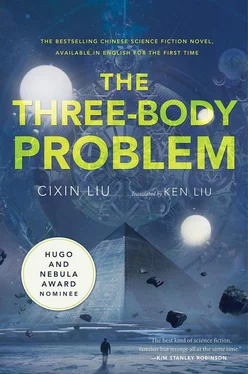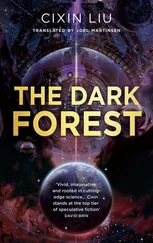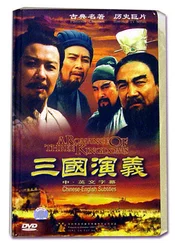In translating, my goal is to act as a faithful interpreter, preserving as much of the original’s nuances of meaning as possible without embellishment or omission. Yet a translator must also balance fidelity to the source, aptness of expression, and beauty of style. The best translations into English do not, in fact, read as if they were originally written in English. The English words are arranged in such a way that the reader sees a glimpse of another culture’s patterns of thinking, hears an echo of another language’s rhythms and cadences, and feels a tremor of another people’s gestures and movements.
I may not have succeeded, but these were the standards I had in mind as I set about my task.
In moving from one language, culture, and reading community to another language, culture, and reading community, some aspects of the original are inevitably lost. But if the translation is done well, some things are also gained—not the least of which is a bridge between the two readerships. I hope my fellow American readers enjoy this novel.
I am indebted to the following individuals, who gave me invaluable feedback on various drafts of this translation: Eric Abrahamsen, Anatoly Belilovsky, Aliette de Bodard, David Brin, Eric Choi, John Chu, Elías F. Combarro, Hui Geng, Michael Kwan, Derwin Mak, Joel Martinsen, Erica Naone, Alex Saltman, Alex Shvartsman, Marie Staver, Igor Teper, Bingen Yang, Bingwei Yang, and E. Lily Yu. I lack words to sufficiently express my gratitude for their help in making this translation better, and I wish every translator had such wonderful beta readers.
Others also deserve thanks. Joe Monti, my former agent (and current editor of my original fiction), dispensed much useful advice. Liz Gorinsky, my editor at Tor Books, helped me improve the translation in a thousand ways large and small, and I can’t imagine a better editorial experience than working with her. My wife, Lisa, provided the support and encouragement to keep me going on many late nights. More than anyone else, she made this possible.
Finally, I thank Liu Cixin, who entrusted me with his work and, in this process, became my friend.
—Ken Liu, June 20, 2014
Cixin Liu is the most prolific and popular science-fiction writer in the People’s Republic of China. Liu is an eight-time winner of the Galaxy Award (the Chinese Hugo) and a winner of the Nebula Award. Prior to becoming a writer, he worked as an engineer in a power plant in Yangquan, Shanxi.
Ken Liu is a writer, lawyer, and computer programmer. His short story “The Paper Menagerie” was the first work of fiction ever to sweep the Nebula, Hugo, and World Fantasy awards.
The author and publisher have provided this e-book to you without Digital Rights Management software (DRM) applied so that you can enjoy reading it on your personal devices. This e-book is for your personal use only. You may not print or post this e-book, or make this e-book publicly available in any way. You may not copy, reproduce, or upload this e-book, other than to read it on one of your personal devices.
Copyright infringement is against the law. If you believe the copy of this e-book you are reading infringes on the author’s copyright, please notify the publisher at: us.macmillanusa.com/piracy.
This is a work of fiction. All of the characters, organizations, and events portrayed in this novel are either products of the author’s imagination or are used fictitiously.
THE THREE-BODY PROBLEM
Copyright © 2006 by  (Liu Cixin)
(Liu Cixin)
English translation © 2014 by China Educational Publications Import & Export Corp., Ltd.
Translation by Ken Liu
This publication was arranged by Hunan Science & Technology Press. Originally published as  in 2008 by Chongqing Publishing Group in Chongqing, China. First serialized in Science Fiction World (
in 2008 by Chongqing Publishing Group in Chongqing, China. First serialized in Science Fiction World (  ) in 2006.
) in 2006.
All rights reserved.
Cover art by Stephen Martiniere
A Tor Book
Published by Tom Doherty Associates, LLC
175 Fifth Avenue
New York, NY 10010
www.tor-forge.com
Tor® is a registered trademark of Tom Doherty Associates, LLC.
eBooks may be purchased for business or promotional use. For information on bulk purchases, please contact Macmillan Corporate and Premium Sales Department by writing to MacmillanSpecialMarkets@macmillan.com.
The Library of Congress has cataloged the print edition as follows:
Liu, Cixin.
[San ti. English]
The three-body problem / Cixin Liu; translated by Ken Liu.
p. cm.
ISBN 978-0-7653-7706-7 (hardcover)
ISBN 978-1-4668-5344-7 (e-book)
I. Liu, Ken, 1976–translator. II. Title.
PL2947.C59S3613 2014
895.13’52—dc23
2014033729
e-ISBN 9781466853447
First U.S. Edition: November 2014
Translator’s Note: This refers to the August 1967 editorial in Red Flag magazine (an important source of propaganda during the Cultural Revolution), which advocated for “pulling out the handful [of counter-revolutionaries] within the army.” Many read the editorial as tacitly encouraging Red Guards to attack military armories and seize weapons from the PLA, further inflaming the local civil wars waged by Red Guard factions.
Translator’s Note: Originally a term from Buddhism, “Monsters and Demons” was used during the Cultural Revolution to refer to all the enemies of the revolution.
Translator’s Note: These were some of the most famous intellectuals who committed suicide during the Cultural Revolution. Lao She: writer; Wu Han: historian; Jian Bozan: historian; Fu Lei: translator and critic; Zhao Jiuzhang: meteorologist and geophysicist; Yi Qun: writer; Wen Jie: poet; Hai Mo: screenwriter and novelist.
Translator’s Note: Chinese colleges (and Tsinghua in particular) have a complicated history of shifting between four-year, five-year, and three-year systems up to the time of the Cultural Revolution. I’ve therefore avoided using American terms such as “freshman,” “sophomore,” “junior,” and “senior” to translate the classes of these students.
Translator’s Note: In the Chinese education system, six years in primary school are typically followed by three years in junior high school and three years in high school. During the Cultural Revolution, this twelve-year system was shortened to a nine- or ten-year system, depending on the province or municipality. In this case, the girl Red Guards are fourteen.
Translator’s Note: “Cadre,” when used in the context of Chinese Communism, does not refer to a group, but to an individual official of the Party or the state.
Author’s Note: During that phase of the Cultural Revolution, most intermediate and higher people’s courts and procuratorial organs (responsible for investigating and prosecuting crimes) were under the control of military commissions. The military representative had the final vote on judicial matters.
Читать дальше


 (Liu Cixin)
(Liu Cixin) in 2008 by Chongqing Publishing Group in Chongqing, China. First serialized in Science Fiction World (
in 2008 by Chongqing Publishing Group in Chongqing, China. First serialized in Science Fiction World (  ) in 2006.
) in 2006.










